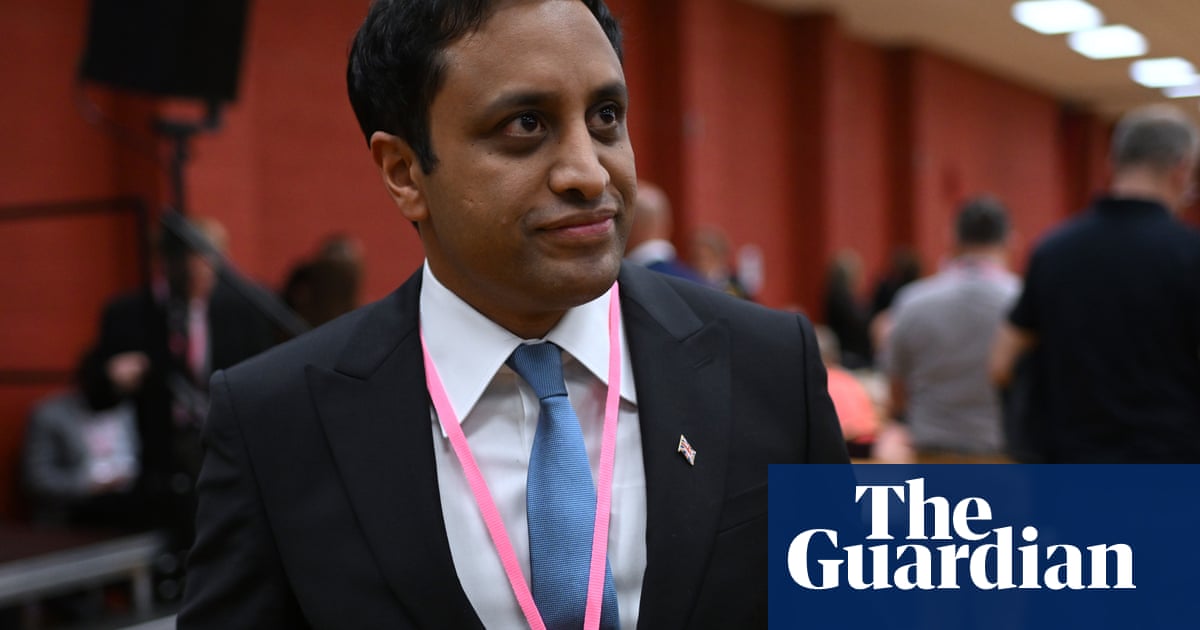Leading British Muslims are warning that Nigel Farage’s Reform UK is increasingly inflaming hostile sentiment towards Muslims after chairZia Yusuf resigned over a row about banning the burqa.
His departure was described by the co-chair of the British Muslim Network, a new civil group representing the community, as a “stark illustration” that many in Reform do not view British Muslims as valued equal members of society.
Yusuf, who describes himself as a ‘British Muslim patriot’ and chaired the party for less than a year, quit on Thursday, saying his work for Reform was no longer the best use of his time.
Hours earlier, he had said it was“dumb”for the party’s newest MP, Sarah Pochin, to press Keir Starmer for a burqa ban when it was not Reform’s own policy.
However, Farage did not weigh in behind Yusuf and called for a debate on the issue.
Farage has drawn a line in the past at the rhetoric of the far right activist known as Tommy Robinson, who is overtly anti-Islam, and has pushed out Reform activists and figures more sympathetic to Robinson such as Rupert Lowe and Ben Habib.
However, the party’s focus on issues related to Islam appears to have increased in recent weeks with Farage holding a debate on his GB News show this week on the burqa.
The Guardian has found that Pochin, a former Tory, also recently posed with a mug branded “Two Tier Keir” that shows Starmer mocked up wearing a burqa in a design that appears to be implying he is more favourable to Muslims than other groups.
Baroness Shaista Gohir, chief executive of the Muslim Women’s Network UK, said political leaders “play a crucial role in shaping societal attitudes, and it is evident that some MPs intentionally use coded language to normalise hostility towards Muslims and appeal to anti-Muslim sentiment”.
“This pattern of anti-Muslim rhetoric, has been present for some time and was particularly intensified by certain Conservative MPs during the previous Conservative government. This is a frightening time for Muslims – barely a week goes by without statements that reinforce harmful stereotypes, fuel fear and hatred, and deepen societal intolerance. Muslim women who wear the headscarf in particular, are made to feel especially vulnerable and unsafe.”
Her position was echoed by Akeela Ahmed, co-chair of the newly formed British Muslim Network, who said: “The resignation of Zia Yusuf is a stark illustration that many in Reform do not view British Muslims as valued equal members of British society and think it is acceptable to push anti-Muslim hostility and sentiments as part of their party polices and campaigns.
“Free speech and expression is a fundamental principle of a healthy society and democracy. By the same token, so is freedom of religion and belief. In this context, the demonisation and weaponisation of British Muslims and their religious practices as one homogenous group to politically point score is a deeply troubling trend that has become increasingly visible and normalised inReform UK, among both its senior politicians and supporters.
“This kind of political behaviour foments division and isolates British people from each other.”
Afzal Khan, a Labour MP and vice-chair of the all-party parliamentary group on British Muslims, said anti-Muslim rhetoric by politicians had the power to cause spikes in hate incidents towards Muslims, such as whenBoris Johnson had referred to women wearing burqas as letterboxes.
“Picking on a very small minority within a minority who use the burqa, how does that make sense? It should be an important opportunity to ask the prime minister about serious issues facing this country. What does it say about their priorities?”
Sayeeda Warsi, the former Tory cabinet minister, told Times Radio that Pochin calling for a debate on the burqa had been “dog whistle” politics.
“I just think this is such a fringe issue and literally I think Sarah Pochin on her first outing at PMQs in parliament used it as a way to gain a bit of attention and engage in a little bit of dog whistle politics,” she said. “Of the 50 odd thousand people in her constituency about 500 are Muslim which is probably about half a percent of which I presume half might be women, I presume maybe a tiny handful might wear the burqa. You’d think she’d just been elected by the people of Runcorn to come to parliament to raise issues like the cost of living, like children in poverty, like the other challenges that her constituents face but she obviously decided to focus on this because it was just an attention-seeking dog whistle moment.”
Yusuf did not mention the burqa row in his resignation statement on X but sources said they thought he had become increasingly disillusioned with the willingness of Reform to appeal to anti-Muslim sentiment when it could have been focusing on issues like the cost of living and migration.
Some of the names tipped to be the party’s new chair include Arron Banks, the Brexit donor and Reform candidate, Richard Tice, the deputy leader, and David Bull, a TV presenter and former deputy leader.
